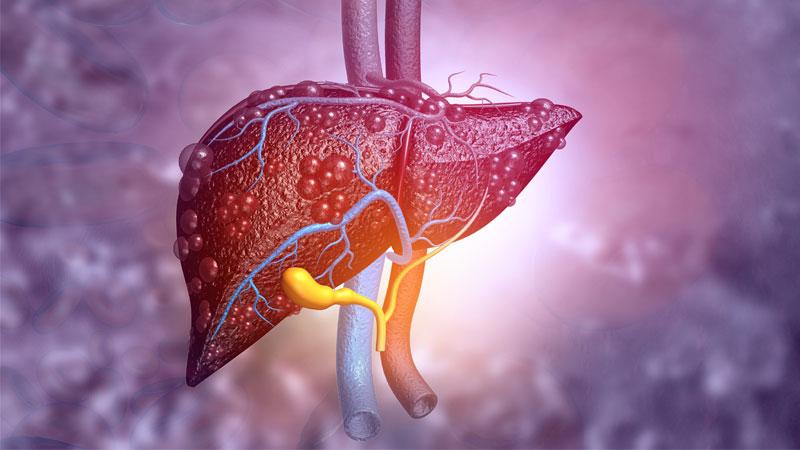The high-profile study, identifying a gene as a target for drugs to prevent liver disease, has been published as an early online publication in the Journal of Hepatology.

This timely research was led by academics from University of Westminster, University College London and the University of Exeter and scientists from Perspectum Diagnostics.
The study was carried out in 14,440 Europeans from the UK Biobank and identified variations in six genes associated with levels of liver inflammation and scarring. One of these genes (SLC39A8) was linked to the risk of higher CT1 measures, an MRI-based method for indirectly measuring the inflammation and scarring associated the more aggressive forms of fatty liver disease referred to as NASH (Non-alcoholic steatohepatitis). The same variation was also linked to elevated blood markers of liver cell injury and damage. This is the first evidence of the role of this gene in liver pathophysiology in humans.
The identification of the gene associated with NASH could lead to the development of new drugs to prevent the disease in at-risk patients.
Although fatty liver diseases affect up to a third of the adult population globally, only a relatively small proportion will experience significant liver disease or liver-related death. Therefore, it is important to identify individuals at risk of developing the more severe and inflammatory version, steatohepatitis, which is considered to be the main driver of liver disease progression.
Understanding the underlying genetic susceptibility of steatohepatitis allows for new insights into the mechanisms behind chronic liver disease and helps to identify potential new drug targets. At present, there is still no approved drug for treating NASH.
Dr Hanieh Yaghootka, from the University of Exeter and the Research Centre for Optimal Health, said: “We showed that obesity in general increase inflammation and scarring of the liver but genetic mechanism that enable the storage of the extra fat in a safe place, under the skin, protect from adverse effect of obesity on the liver. Our genetic study also provides evidence that addressing weight gain and insulin resistance are useful strategies in the prevention of steatohepatitis.”
Dr Louise Thomas, Senior Lecturer at the University, said: “Availability of the unique resource such as UK Biobank and our partnership with leading diagnostic companies such as Perspectum has provided us with a a rare opportunity to study the genetics of NASH a key stage in the progression of liver disease non-invasively. Our study adds insight into the underlying mechanism for liver disease.”
Professor Jimmy Bell, from the Research Centre for Optimal Health, commented: "This is an excellent example of the value of Big Data coupled to a novel non-invasive approach to assessing NASH. The identification of potential genetic markers for such a crucial condition, will no doubt open up new avenues of research and understanding leading to better monitoring and even treatment."
Find out more about the study on the Journal of Hepatology website.


